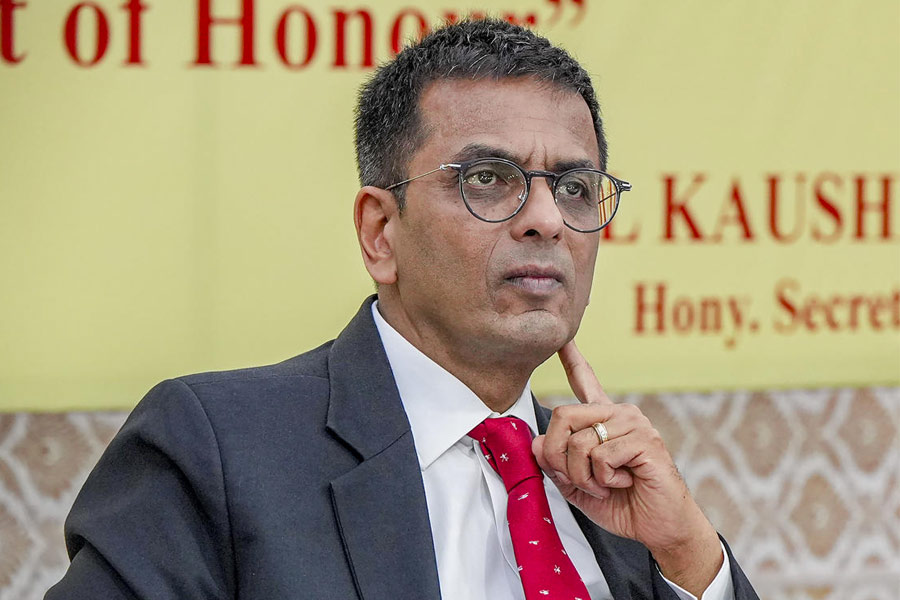The Supreme Court Bar Association has objected to the Chief Justice of India’s decision to abolish the decades-old practice of advocates and litigants circulating “letters of adjournment” and argued that this will “seriously affect the proper representation of the matter, resulting in injustice to the litigant”.
“Letters of adjournment” are letters sent by advocates or litigants to the registry before the date of hearing asking that the matter be heard on some other day. While advocates and litigants do so because of their own difficulties, the Supreme Court has often frowned on the practice on the ground that it causes backlog and delays the disposal of cases.
Chief Justice D.Y. Chandrachud has in two circulars, issued on December 5 and 22, announced the discontinuance of the practice in the top court as a measure towards the speedy disposal of cases.
In the “letters of adjournment”, the advocates or litigants usually suggest an alternative date, which the bench generally tries to accommodate. If the practice is abolished, the court may not just adjourn the matter to an alternative date of its choice but, instead, pass orders in absentia.
The Supreme Court Bar Association (SCBA) has in a recent letter to the CJI said: “There are several reasons why matters may not be effectively heard on the day of their listing. These include the sudden non-sitting of Hon’ble Judges due to unavoidable circumstances, matters listed on a particular day not being heard due to a lack of time, as well as matters adjourned at the request of the Advocates.”
The letter, issued through SCBA secretary Rohit Pandey, adds that one of the reasons for seeking adjournment on behalf of the Bar is the delayed publication of the advance/ weekly/ daily/ regular/ supplementary lists, as well as the sudden listing of matters, by the registry.
Because of these reasons, advocates are often unable to seek effective instructions from their clients, including instructions relating to the engagement of the arguing counsel.
“It is important to reiterate that the Supreme Court is a court of final resort, and while the goal is the early disposal of matters, the aim is effective hearing and justice for the litigants,” the letter says.
“Therefore, if the practice of circulating letters of adjournment is discontinued altogether, it will seriously affect the proper representation of the matter, resulting in injustice to the litigant.... This age-old practice of circulating letters for adjournment is a necessary and indispensable tool to avoid a miscarriage of justice.”
According to the SCBA, the apex court registry issued the circulars of December 5 and 22, discontinuing the practice of circulating letters for adjournment, without consulting the Bar Association. It says the measure has caused its members a lot of inconvenience.
The Bar Association has requested that registry officials be directed to hold discussions with it before issuing any circular in future as the Bar and the Bench are equal stakeholders in the administration of justice.
“…There may be situations where an adjournment is absolutely necessary, for example when the advocate is unwell. The practice of circulation of letters seeking adjournment was brought in by the court so that judges get to know the adjournment request in advance and therefore need not read the file, if the adjournment request is genuine,” the SCBA letter says.
“Even with the practice of circulation of letters, the final call… whether to grant the adjournment or not is taken by the bench concerned. Doing away with the practice of circulation of letters will only inconvenience the judges.”
According to the Bar Association, the apex court’s feat of disposing of a record 52,000 matters in 2023 had been achieved with the help of the system of circulating letters for adjournment.
It has requested that the practice be maintained and cause lists be published at least two weeks in advance, except for fresh listings, which will allow the letters of adjournment to be sent early, too.
“Once the registry is well aware in advance about the number of adjournment slips/ letters, it can suitably adjust the final cause list for a particular day for all honorable benches for maximum disposal of cases,” the letter says.
“Additionally, we are mindful of the fact that the Courts are overburdened by the number of cases, and therefore, increasing the disposal of cases assumes primacy. To address this, we recommend that the number of Judges should be increased, taking into account the ‘judge to population ratio’ in the country.”











